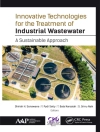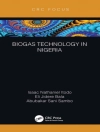Sustainability applies to everybody. But everybody applies it differently, by defining and shaping it differently—much as water is edged and shaped by its container. It is conceived in absolute terms but underpinned by a great diversity of relatively “green”—and sometimes contradictory—practices that can each make society only more or less sustainable. In
Practicing Sustainability, chefs, poets, music directors, evangelical pastors, skyscraper architects, artists, filmmakers, as well as scientific leaders, entrepreneurs, educators, business executives, policy makers, and the contrarians, shed light on our understanding of sustainability and the role that each of us can play. Each contributor addresses what sustainability means, what is most appealing about the concept, and what they would like to change to improve the perception and practice of sustainability. What emerges from their essays is a wide spectrum of views that confirm an important insight: Sustainability is pursued in different ways not only due to different interpretations, but also because of varying incentives, trade-offs, and altruistic motives. Practicing and achieving sustainability starts with a willingness to look critically at the concept. It also means enabling rich and vigorous discussion based on pragmatism and common sense to determine a framework for best ideas and practices. With time and the much needed critical thinking, sustainable development will become a more integral part of our culture. By sharing experiences and crisp insights from today’s savants,
Practicing Sustainability serves as a stepping stone to the future.
Jadual kandungan
Biographical Information.- Preface, It’s Different: Sustainability and Touchy Trade-Offs, Editors.- Acknowledgements.- Foreword, Michael Spence.- Editorial, Klaus Schwab.- Editorial, Sustaining Sustainability: Thoughts on Managing Trade-Offs and Competing Considerations, Robert Rubin.- Editorial, Sustainability: Can You Get There, If You Don’t Know Where “There” Is? George Whitesides.- 1. What Medical Equipment Taught Me About Sustainability, Robert Malkin.- 2. Food: The Ultimate Answer, José Andrés.- 3. A Village of Hope: The Interplay of Sustainability and Community Development, Mark Templer.- 4. Trade-Offs in Sustainable Development, Homi Kharas.- 5. Sustainable Skyscrapers and the Well-Being of the City, Richard Cook.- 6. Dimensional Stability, Heidi Williamson.- 7. Sustainability: A Tale of Twin Brothers, Ken Wilson.- 8. Cooperation and Sustainability, Simon Levin.- 9. The Sincerity of Purpose: Sustainability and World Peace, Arun Gandhi.- 10. Recycling Reinvented: Music and Sustainability, José-Luis Novo.- 11. Connectivity and Sustainability: Perspectives from Landscape and Urban Design, Diana Balmori.- 12. Nutrition and Sustainability, Marc Van Ameringen.- 13. A Poet in the Car Company: Sustainability of Passion and Profitability, David Berdish.- 14. The Need for Sustainable Heretics, Freeman Dyson.- 15. Performance with Purpose, Dave Haft.- 16. The Business of Sustainability: A Different Design Question, Gregor Barnum.- 17. Sustaining Population Health, Jacqueline Sherris.- 18. The Struggle to Make Sustainable Change in Global Health, Laurie Garrett and Zoe Liberman.- 19. Economic Growth and Sustainability Rooted in Financial Literacy, John Hope Bryant.- 20. Approaching the Future with Optimism, Robyn Beavers.- 21. A Decent Place to Live, Jonathan Reckford.- 22. From Field to Market: Changing our Focus, Gerald Steiner.- 23. Joules: The Currency of Sustainability, Chandrakant Patel.- 24. Spoons or Tractors: Sustainable Development as Rapid Productivity Growth in Developing Nations, Robert Atkinson.- 25. Unlocking the Energy of Business to Effect Change, Meg Crawford.- 26. Put it on Paper: Lowering Healthcare Costs, Una Ryan.- 27. Mind the Gap: A Different Take on Sustainability, Matthew Taylor .- 28. Sustainable Scientific Research, K.R. Sreenivasan.- 29. Energizing Sustainable Development, V.S. Ramamurthy and Narendar Pani.- 30. The Importance of Sustainability in Helping the Poor, Mechai Viravaidya.- 31. Why is Waste a Dirty Word? Melanie Walker.- 32. How Much Is Enough? Making It Personal, Toinette Lippe.- 33. Teaching Sustainability in the Anthropocene Era, Kai Lee and Richard Howarth.- 34. Don’t Sustain; Advance, Kevin Finneran.- 35. Changemakers for Sustainability, Karabi Acharya.- 36. What Social Entrepreneurs Taught me about Sustainability, Mirjam Schöning.- 37. An Emotional Connection with Sustainability through Documentary Films, Heather Mac Andrew and David Springbett.- 38. Conserving Energy for Tomorrow without Sacrificing Quality of Our Lives, Scott Tew .- 39. Sustainability of Our Ocean Resources, James Barry.- 40. Will it Last? Will it Endure? Andrea Coleman and Barry Coleman.- 41. The Holistic Enchilada: Moving Toward Food System Sustainability, Wayne Roberts.- 42. Bringing Organizational Sustainability to Public Postsecondary Education, Christopher Hayter and Robert Hayter.- 43. Ensuring Connections, Harvey Locke.- 44. Beyond the Status Quo: Catalyzing Sustainability in the Arts, Jane Milosch.- 45. Historic Preservation: The Real Sustainable Development, Donovan Rypkema.- 46. Bending Toward Justice: The Search for Sustainable Energy, Michael Brune.- Afterword, M.S. Swaminathan.
Mengenai Pengarang
Guruprasad Madhavan (Editor) is a program officer at the National Academy of Sciences, National Academy of Engineering, Institute of Medicine, and National Research Council—collectively known as the National Academies—in Washington, DC.
Barbara Oakley (Editor) is an associate professor of engineering at Oakland University in Rochester, Michigan, and a former vice-president of the IEEE Engineering in Medicine and Biology Society.
David Green (Editor) is a Mac Arthur Fellow, Ashoka Fellow and is recognized by the Schwab Foundation as a leading social entrepreneur.
David Koon (Editor) represented the 135th district of the New York State Legislative Assembly from 1996 to 2010.
Penny Low (Editor) is a Member of Parliament of Singapore, and was the youngest elected female representative in 2001.
Michael Spence (Foreword) is William R. Berkley Professor in Economics and Business at New York University, and recipient of the 2001 Nobel Memorial Prize in Economic Sciences.
Klaus Schwab (Editorial) is founder and executive chairman of the World Economic Forum.
Robert Rubin (Editorial) is Co-Chairman of the Council on Foreign Relations. He served as the 70th Secretary of the U.S. Treasury.
George Whitesides (Editorial) is Woodford L. and Ann A. Flowers University Professor of Chemistry and Chemical Biology at Harvard University.
M. S. Swaminathan (Afterword) is a Member of the Indian Parliament (Rajya Sabha) and a World Food Prize Laureate.












